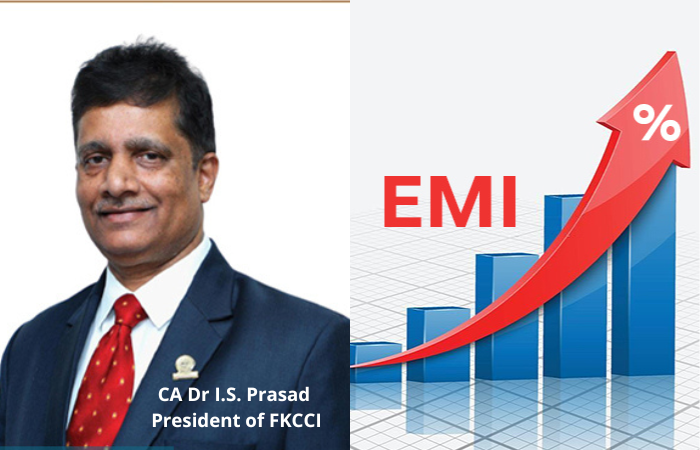Latest Repo rate hike, a Catch-22 situation for Business Owners
The recent repo rate hike by RBI by 0.5% – which follows a 0.4% hike in May – is yet another dampener for retail borrowers, small businesses and even a section of corporate customers.
These borrowers will now have to bear more by way of interest payout after the Monetary Policy Committee’s decision to go for another repo rate hike.
To put it candidly, this is like a catch-22 situation for business owners, and MSEs in particular. Consider: The soaring inflation level in the economy and the RBI’s own forecast pegging it at 6.7% for FY23 made for a compelling reason to hike the repo rate. But after this hike, floating rate loans linked to the repo rate would be automatically re-priced.
This will be followed by other loans that are linked to other external benchmarks. If new loans on the repo-linked benchmark will immediately see the rate hike’s impact, existing loans will see the change based on their respective reset dates. Under RBI regulations, banks are supposed to reset the interest rate on loans linked to external benchmarks at least once every three months.
Some experts suggest that the hike in loan interest will deflate the demand for loans in the market, but there is no empirical data to authenticate this assessment, at least as of now. In fact, some senior bankers have stated that the earlier hike has not reflected in any dipping demand for loans, but at the same time, it cannot be ruled out that as far as micro and small enterprises and retail sector are concerned, there could be some contraction.
The worrying factor is that as per RBI data, over 69% of all floating rate small business loans were linked to an external benchmark as of 31 December. This is because RBI had directed banks to link all new floating-rate personal, and micro and small enterprises loans to an external benchmark from October 2019 and in case of medium enterprise loans, in April 2020. So it can be said these loans will be re-priced and it may well have a ripple effect on demand for fresh loans.
So we are in for trying times, but obviously, the apex bank had no choice but to raise the repo rate – and as market-watchers have warned us, more such hikes are expected this fiscal, to rein in the galloping inflation, induced by the Ukraine war in particular and the pandemic environment in general.
However, there is some wiggle room yet for the government to take steps on the fiscal policy front. Maybe it could explore the possibilities of realigning spending to crowd in private investment through infra projects.
Summing up, it is a tough ask, but tough times need a tough response!
By – CA Dr I.S. Prasad, President of FKCCI









